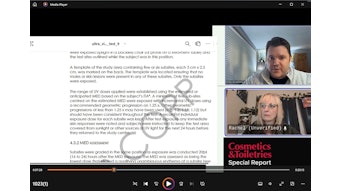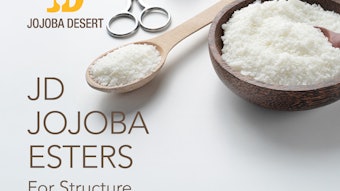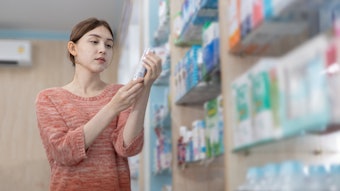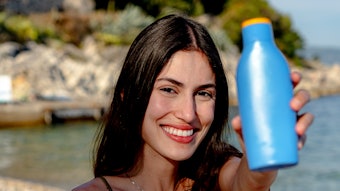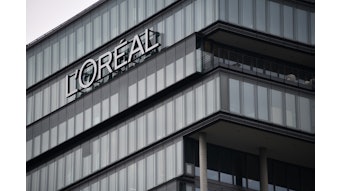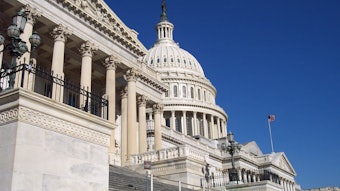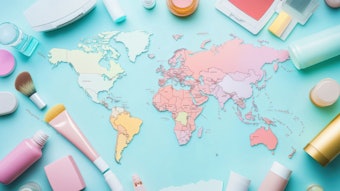The Personal Care Products Council (PCPC) has published a response to "The Story of Cosmetics," a video by the Campaign for Safe Cosmetics (CSC) alleging that cosmetic manufacturers formulate toxic chemicals into consumer products.
The video begins with the host referring to the bathroom as "a minefield of toxins." In response to the video, Kathleen Dezio states, "The content in this harsh and unscientific ‘shockumentary – genre’ video bears no relationship to the ‘real’ story of cosmetics. Our industry employs hundreds of men and women who have devoted their careers to substantiating the safety of cosmetic products. This video is an unfortunate attempt to generate fear about an alleged public health risk from cosmetics that is unwarranted. It is repugnant to suggest that cosmetic companies would manufacture, and the US Food & Drug Administration (FDA) would allow them to market, products that are dangerous or contain toxins that cause cancer or any other disease. It is absurd to suggest that the men and women in our industry would market products that could cause harm to themselves and their families."
Throughout the course of the video, a number of large cosmetic manufacturers are referenced. For example, the video references Estée Lauder's cosmetic products that raise money for breast cancer, alleging that these products contain ingredients that cause breast cancer. To that comment, Dezio states, “The cheap attack in the video on industry philanthropy and the efforts of companies to champion various women's health-related causes is offensive. The personal care products industry gives more than $200 million in contributions to charitable causes each year, an amount almost twice that of any other industry in the manufacturing sector. In fact, through its Look Good…Feel Better program, the industry has helped 700,000 women in the U.S. overcome the appearance-related side effects of cancer treatment."
The video also mentions that Procter & Gamble's Herbal Essences brand contains toxic petrochemicals. It uses this point to further that products labeled as organic, herbal or natural often are not what they claim.
The video continues that less than 20% of cosmetic ingredients have been tested for their safety by the FDA. It explains that while some of these chemicals are not harmful, many of them are carcinogenic or toxic to reproduction.
Dezio explains, “Cosmetic companies are required by law to substantiate the safety of their products before they are marketed. Companies take this responsibility for safety substantiation very seriously. Safety substantiation of ingredients, either by manufacturers or raw material suppliers, is based on a rigorous scientific safety process that includes studies of closely related substances, utilizing computer modeling to predict potential toxicity, in vitro testing, and human product safety experiences."
The host of the video claims to have had her body tested for toxins to discover mercury, triclosan, lead and flame retardants. She then goes on to claim that babies are being prepolluted. To that end, the video claims that the cosmetic industry is not doing anything to ensure the safety of consumers. It notes that the FDA has banned 8 of 12,000 ingredients in cosmetics since 1938, furthering that the cosmetics industry is making the rules and deciding whether to follow them.
Dezio addresses these claims by noting, “Safety is determined on the basis of proven principles of risk assessment. There are four main components in science-based safety assessment that are well documented by the National Academy of Sciences, the Society of Toxicology and numerous government agencies around the world. Manufacturers consider these components—hazard identification, dose response, exposure assessment and risk characterization—in their safety assessments. During the safety assessment process, companies also consider exposure from other sources over the course of a person’s lifetime.
“Under the US Food, Drug, and Cosmetic Act (FD&C Act), it is a federal crime to market an unsafe cosmetic product in the United States. The marketing of an unsafe cosmetic product carries significant consequences. FDA has clear and abundant legal authority to regulate the safety of cosmetic products including authority to: ban or restrict ingredients for safety reasons, enter and inspect manufacturing facilities, issue warning letters, seize unsafe or misbranded products, prohibit unlawful activities, and prosecute and jail violators," Dezio adds.
The PCPC is hopeful that its initiative toward more FDA oversight of cosmetic ingredients will enhance existing regulatory to allow for the growth of the industry, innovations in R&D and scientific advancements.


